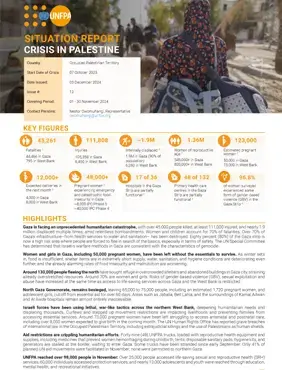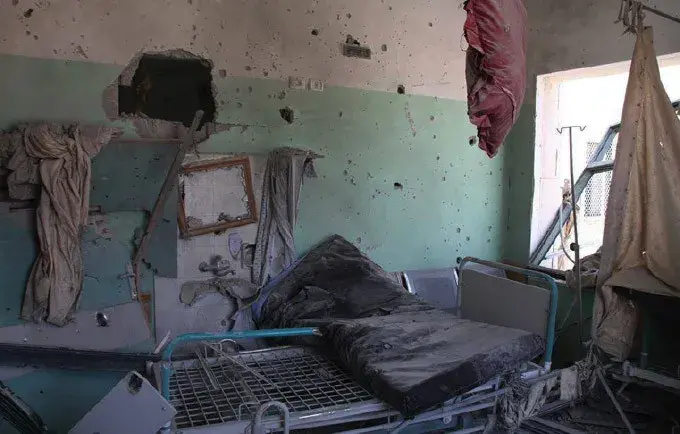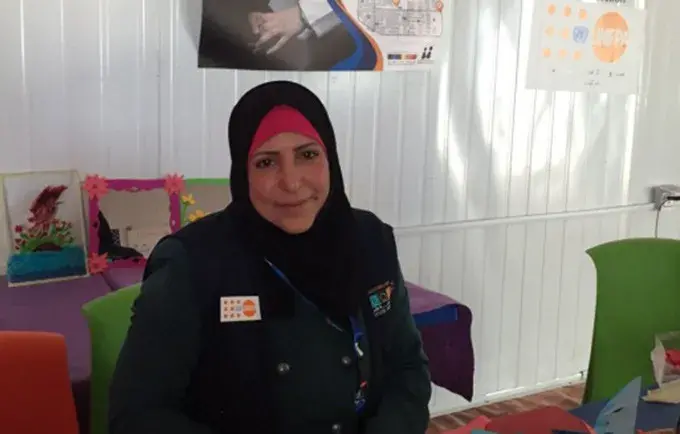Gaza is facing an unprecedented humanitarian catastrophe; over 45,000 people have been killed, with women and children accounting for 70 per cent of fatalities. An additional 111,000 people have been injured, and nearly 1.9 million displaced multiple times, amid relentless bombardments. Over 70 per cent of Gaza’s infrastructure – from health services to water and sanitation – has been destroyed. The health care system is close to collapse. Only 17 of 36 hospitals are partially functional, while 84 per cent of health care facilities have been destroyed, amid a dire shortage of medical supplies, fuel and food.
Women and girls in Gaza, including 50,000 pregnant women, have been left without the essentials to survive. As winter sets in, food is insufficient, shelter items are in extremely short supply, water, sanitation, and hygiene conditions are deteriorating even further, and the already alarming rates of food insecurity and malnutrition are worsening. Around 345,000 people in Gaza, including 38,000 adolescent girls and 8,000 pregnant women, are facing famine-like conditions. There are increased reports of preterm and low-birth weight babies and malnutrition is making it harder for new mothers to breastfeed.
Around 130,000 people fleeing the north have sought refuge in overcrowded shelters and abandoned buildings in Gaza city. Around 70 per cent are women and girls. Risks of gender-based violence (GBV), sexual exploitation and abuse have increased at the same time as access to life-saving services across Gaza and the West Bank is restricted. Analysis conducted by the GBV Sub-Cluster found that from October 2023 to September 2024, 96 per cent of women surveyed experienced some form of GBV.
Aid restrictions are crippling humanitarian efforts. 49 UNFPA trucks, loaded with reproductive health equipment and supplies, including medicines that prevent women haemorrhaging during childbirth, tents, disposable sanitary pads, hygiene kits, and generators are stalled at the border, waiting to enter Gaza.
Some trucks have been stranded since early September. Only 41 per cent of planned UN aid movements were facilitated in November; none were permitted to northern Gaza.
Despite these challenges, UNFPA reached over 98,000 people in November – over 25,000 people accessed life-saving sexual and reproductive health services; 60,000 individuals accessed protection services; and nearly 13,000 adolescents and youth were reached through education, mental health, and recreational initiatives. In addition, UNFPA has distributed 17,415 dignity kits to women and girls, and provided cash voucher assistance to 2,444 women to address urgent needs and reduce vulnerability.
As part of the Occupied Palestinian Territory Flash Appeal, UNFPA requested 90.2 million USD for its operational response for 2024. As of November 2024, UNFPA has received 65.2 million USD. An additional 25 million USD is urgently needed to fully support UNFPA’s response through December 2024.





